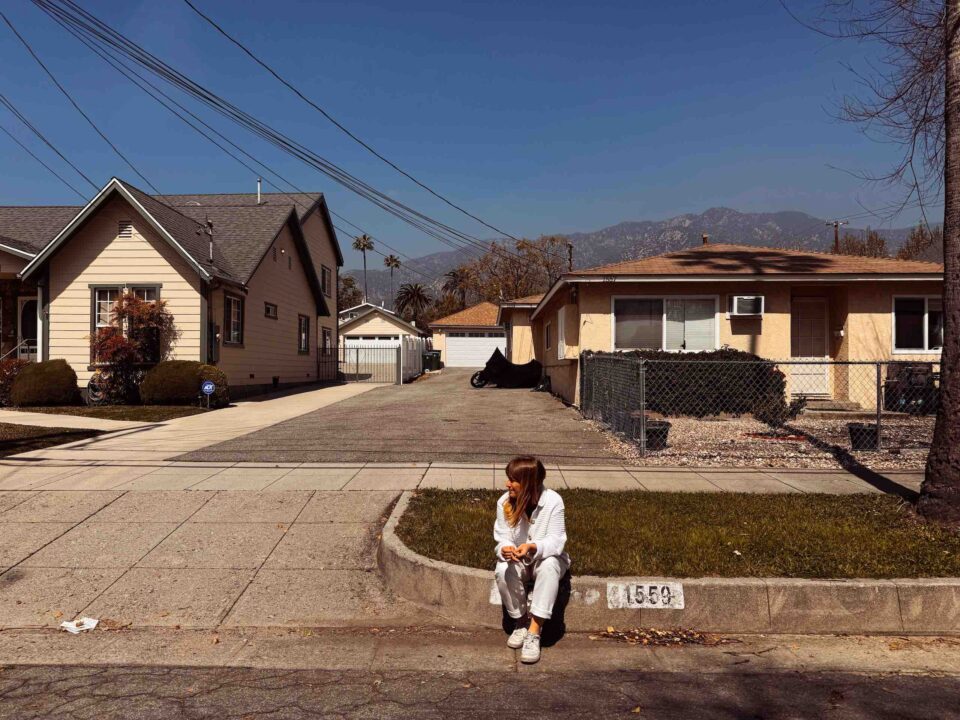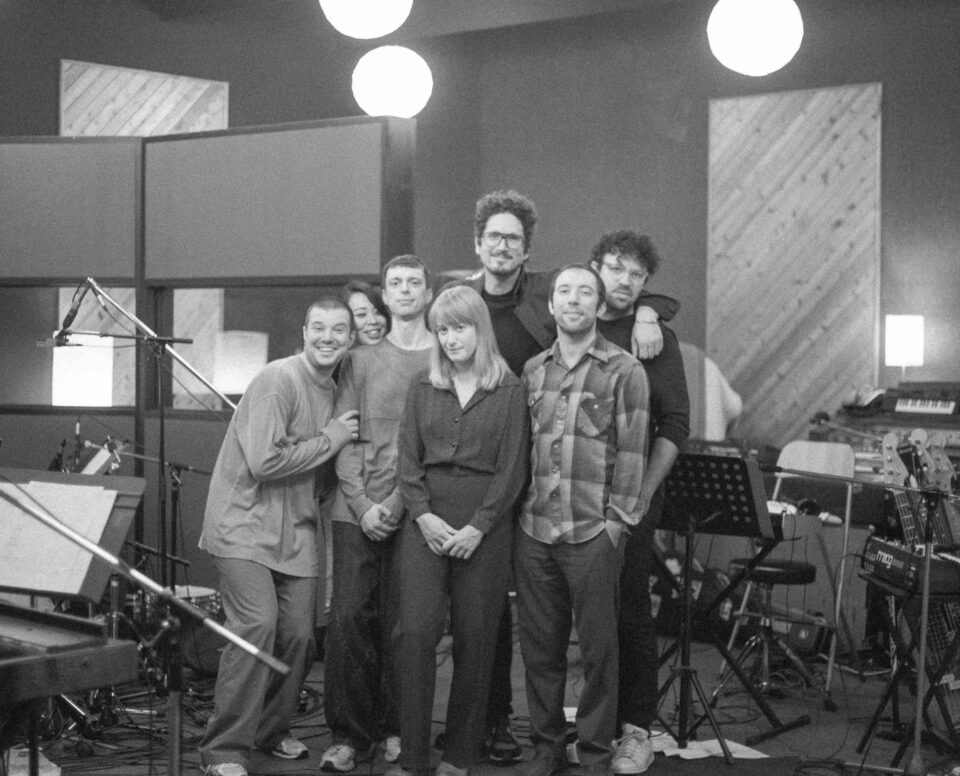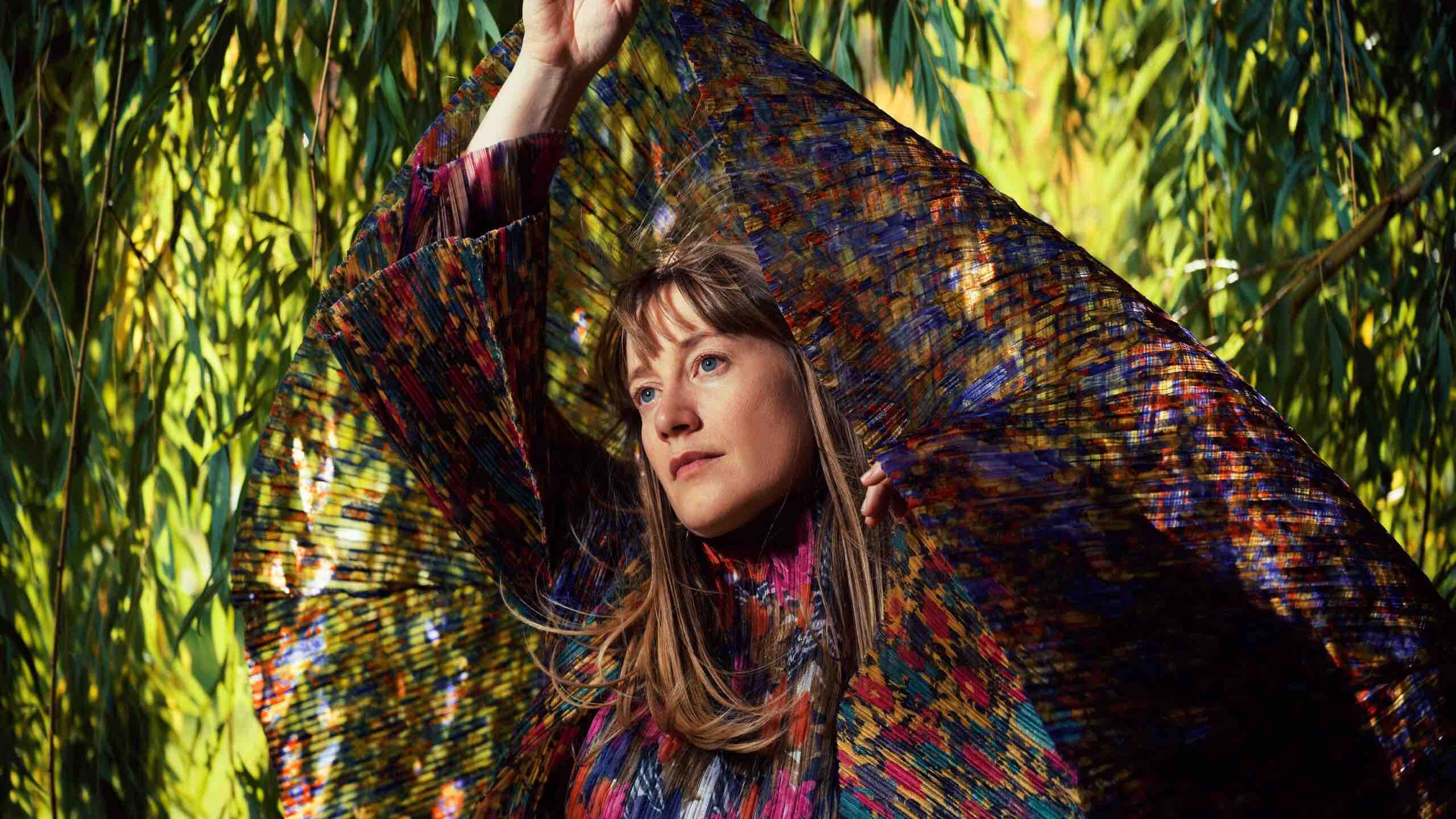It’s not every day that you receive an email with the subject line “Turn towards each other.” In a roiling sea of political ads, marketing bloat, and Watch Duty notifications, it’s a pleasant message to receive. Tamara Lindeman of The Weather Station sent that email on January 10, during the height of the Los Angeles wildfires. Originally the newsletter was planned as a promotional message for her brilliant seventh album, Humanhood, but quickly turned into a call to action to donate and help our fellow humans. It highlights the empathy the indie-folk artist has quietly cultivated with her climate activism since her 2021 breakthrough album, Ignorance, not to mention her shift from the roots rock heard on her self-titled 2017 album and the pastoral folk of her earliest solo records.
In that same email, Lindeman went on to note that Humanhood was mixed by Joseph Lorge near where the Eaton Fire struck, and she walked Eaton Canyon almost every day during that intricate process. She noted that the Altadena area is known for its population of musicians: “it’s a bit more affordable than other areas of LA, and many musicians and folks in the music community have now lost their homes and the gear they rely on for work.” She closes the message by giving her audience two choices: “we can turn towards each other in mutual care and in recognition of our vulnerability, or we can turn on each other and ourselves.”
It’s a stark choice, but that’s the manner and mode of The Weather Station’s music. The concept of “humanhood” is positioned on the album as a state of mind, which can’t be fortified only by one person fighting alone. Lindeman has known this since her younger days as a child actor. “There’s a lot of things that acting gave me that I’m grateful for,” she tells me. “But I did feel like at this very young age I experienced a loss of my identity, [that] my face belonged to other people. And with music—I mean, even the name ‘The Weather Station’ was an attempt to begin a process of self-expression and identity.”
Lindeman has amplified that self-expression with her latest jazzy, folky, and jamming masterpiece. Humanhood opens with a descent into emotional traumas and ends with a healing and collaborative sewing-together of human ideas—as both songs explicitly hint in their titles. The Toronto-based musician surrounded herself with a band that helped her through an emotionally dark period in her life. “I just can really hear all of their spirits on the record, and that makes me happy,” she shares. “And I think collaboration is, in some ways, the part of my work that I find the hardest.”
“One theme [on Humanhood] is seeking connection and not knowing how to find it, not knowing what it feels like, not knowing that it’s possible.” — Tamara Lindeman
Lindeman believes this is an important time for showcasing human collaboration. She chose to name the record “Humanhood” for many reasons, the primary one being that “we’re living in a very anti-human time, which is very strange.” From the opening notes, Humanhood sounds like a project where a group of like-minded friends got in a room and decided to hit record. It’s a very rare sound in 2025. Early flute- and piano-led single “Neon Signs” unfurls with some stark opening lines: “I’ve gotten used to feeling like I’m crazy, or just lazy / Why can’t I get off this floor? Think straight anymore? / Out on the street, I went walking in a punishing heat / Nobody meets my eyes except witty signs and luxury designs.” Later, the thrumming “Window” sees the band imitating the sound of disassociation and rage as emotions fly toward any open exit in the track’s apartment setting.
The record was primarily recorded in two sessions at Canterbury Studios in Toronto with a six-piece band. The late-night, one-take collaboration brought back five verses that Lindeman had discarded, which beautifully ties in with the track’s theme of not discarding things that are vital to your growth as a person. “I think in the world right now, there’s been this desire to exclude things that are dark and that we don’t want to see,” Lindeman says. “There’s a desire to impose a narrative that makes sense, good and bad.” In the end, that exclusion of grief, the other, nature, or our grudges will only unravel the quilt that makes us human on a living planet, according to Lindeman.

Frustration builds up at the edges of Lindeman’s voice when she discusses the state of the world in 2025. “People are always coming up with worldviews that are a little crazy, but at the end of the day, we’re very lumpy, inconsistent, and sort of strange,” she says. This topic of examining our grief as an extension of the mass extinctions we see in the rainforest, Big Sky Country, or California is that life continues even with such destruction, and that gives Lindeman some sliver of hope. She pulls on some of those threads with her band during the spoken-word “Irreversible Damage.” “People are very diverse, even within one person,” Lindeman notes. “We’re like earthly and biological things. The quilt is there. There’s just a multiplicity of creatures on every inch of the planet. And it’s only people that create these strange, binary perspectives.”
That vulnerable, sewing-together theme is something percussionist Philippe Melanson also witnessed during Humanhood’s deeply collaborative recording process. “It was fun to record,” he recalls. “There was a nice sense of freedom during the sessions. Musical kinship, friendship—hopefully people can hear that. I had more of a percussive role rather than a drumset, and I love doing that: trying to find the right colors to deepen the feel.” Bassist Ben Whiteley has collaborated on four Weather Station records so far and he notes that it’s been “exciting to see [Tamara] gain more command of her craft as she’s gained more experience. She’s truly a creative force, and it’s always exciting to be around that.”
“There was a nice sense of freedom during the sessions. Musical kinship, friendship—hopefully people can hear that.” — percussionist Philippe Melanson
Throughout “Mirror” and “Passage,” the experimental washes of percussion backdrop an exploration of chemical rains and human nature run amok. When the clouds part, the melodic pop we know The Weather Station can deliver reveals itself again on the grooving “Body Moves.” Beyond the more melodic passages, several tracks on the record stretched the band with an intricate mix of percussion, piano, synths, and brass. With such a complicated recording setup with so many overlapping instruments, Lindeman brought in Marcus Paquin to co-produce the session at Canterbury. Having previously worked with Lindeman on Ignorance, Paquin’s editing talents were just as welcome to the project as his passion for the environment. For him, the highlight of the project was rehearsing and recording “Window.” “It’s such an explosive song,” Paquin says. “It was amazing to watch the band spring into life and light a huge fire under that song. It’s quite a ride!”
Lindeman’s band helped to stitch up their leader’s process of sorting out her dissociated selves and how she framed herself within the crumbling notion of truth in our society. “I think there are many themes to the record, but one theme is seeking connection and not knowing how to find it, not knowing what it feels like, not knowing that it’s possible.” Lindeman doesn’t have to stare at that smudge that can’t wash out all alone on the devastating piano ballad, “Lonely.” That track’s “habitual mistrust” will heal in time just as the anxiety of the instrumental “Aurora” resolves with “Sewing.”
With Humanhood, Lindeman has created a collaborative record that’s always in motion, fighting against emotional entropy. Whereas Ignorance and How Is It That I Should Look at the Stars looked outward and commented on the barometric and psychological pressures surrounding us, Humanhood also asks the listener to turn to each other to find a way out. FL








